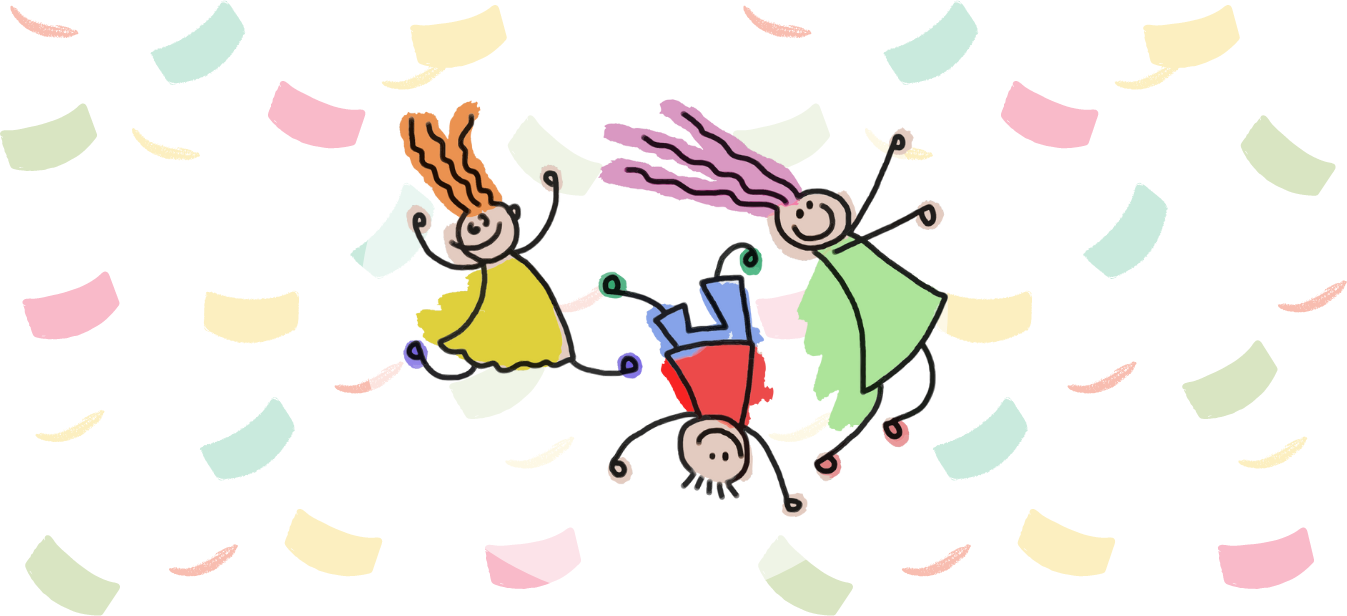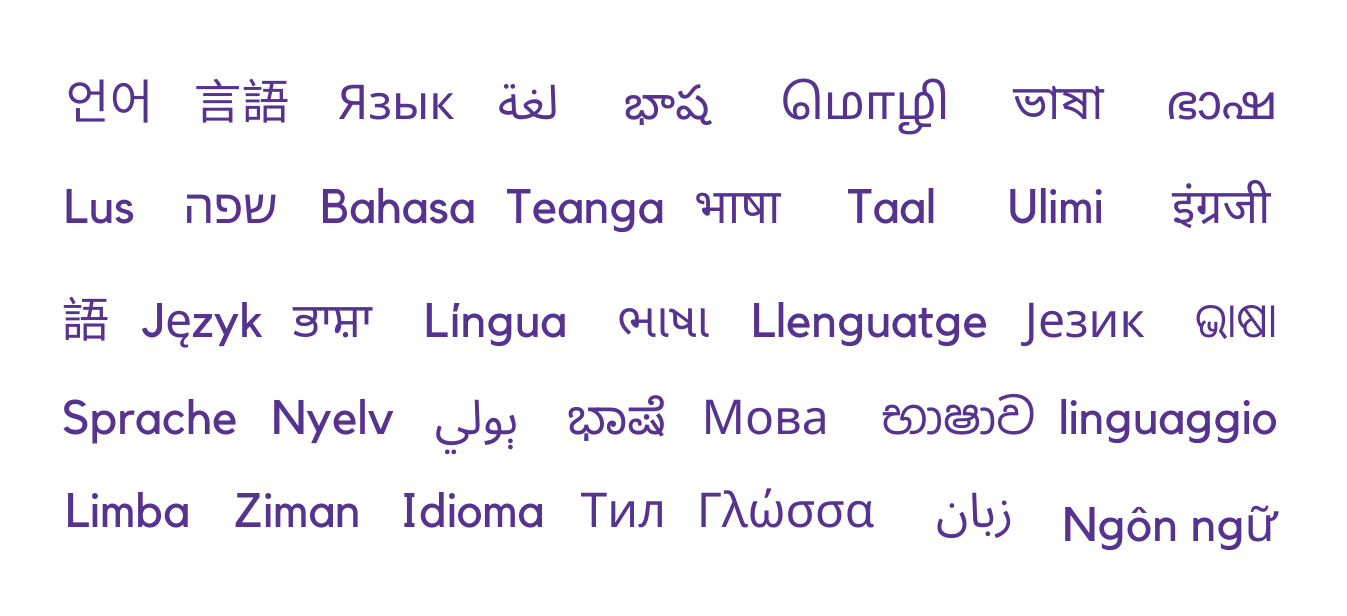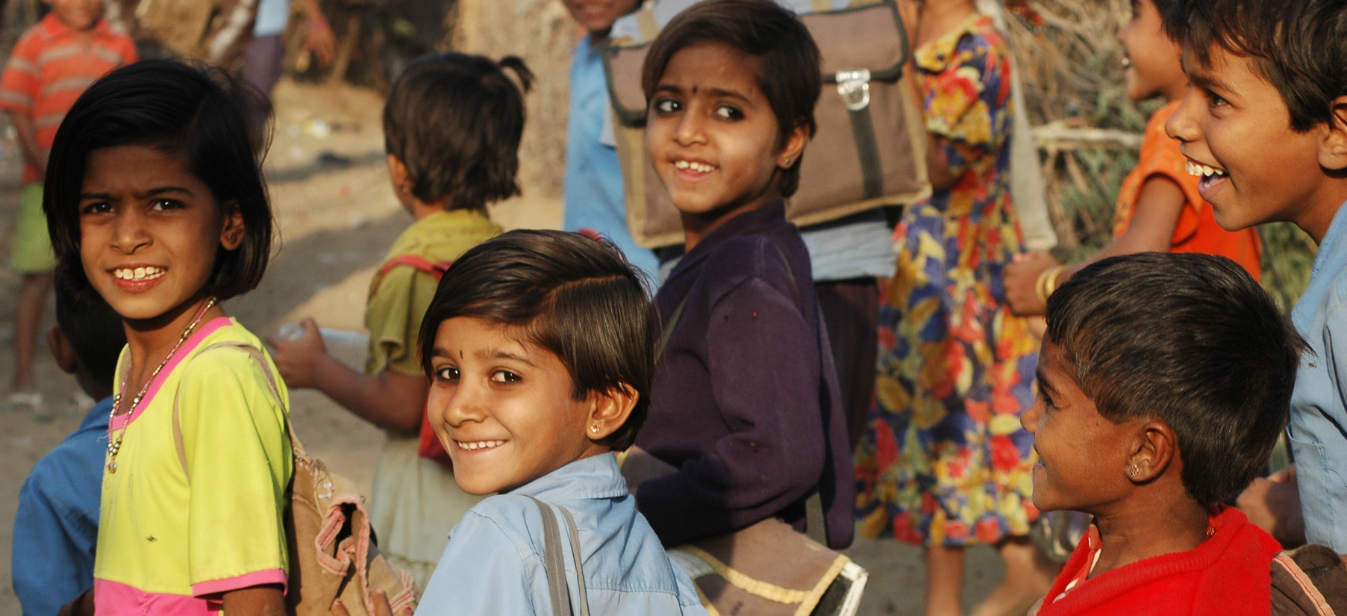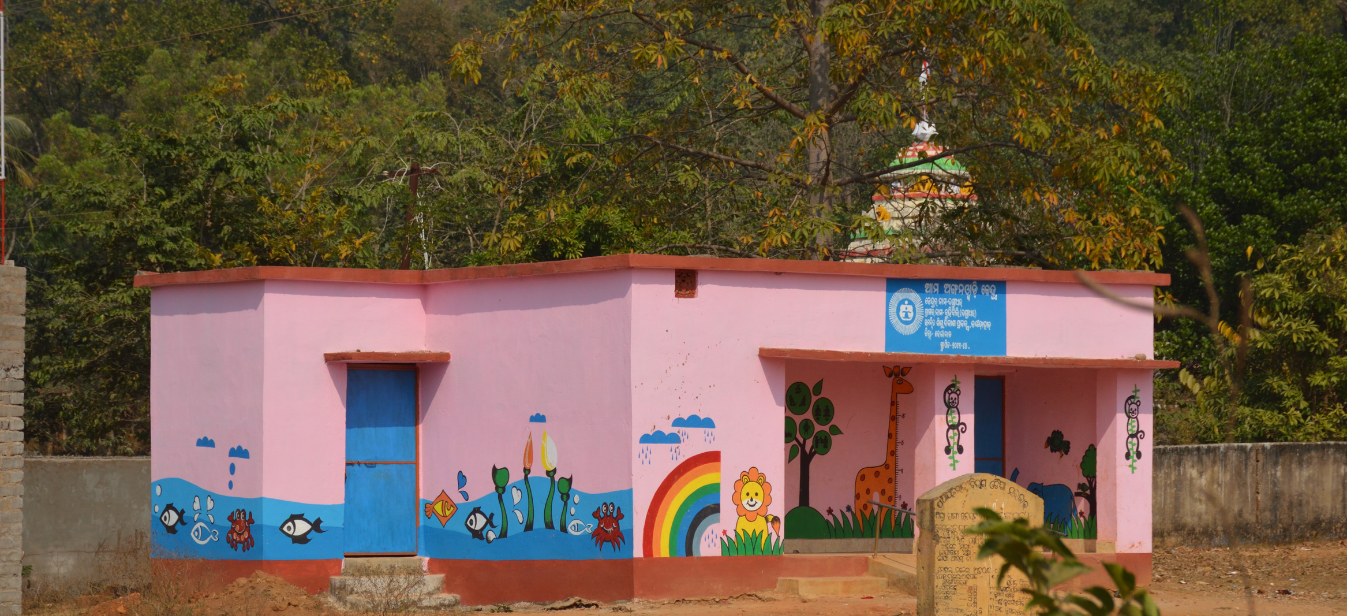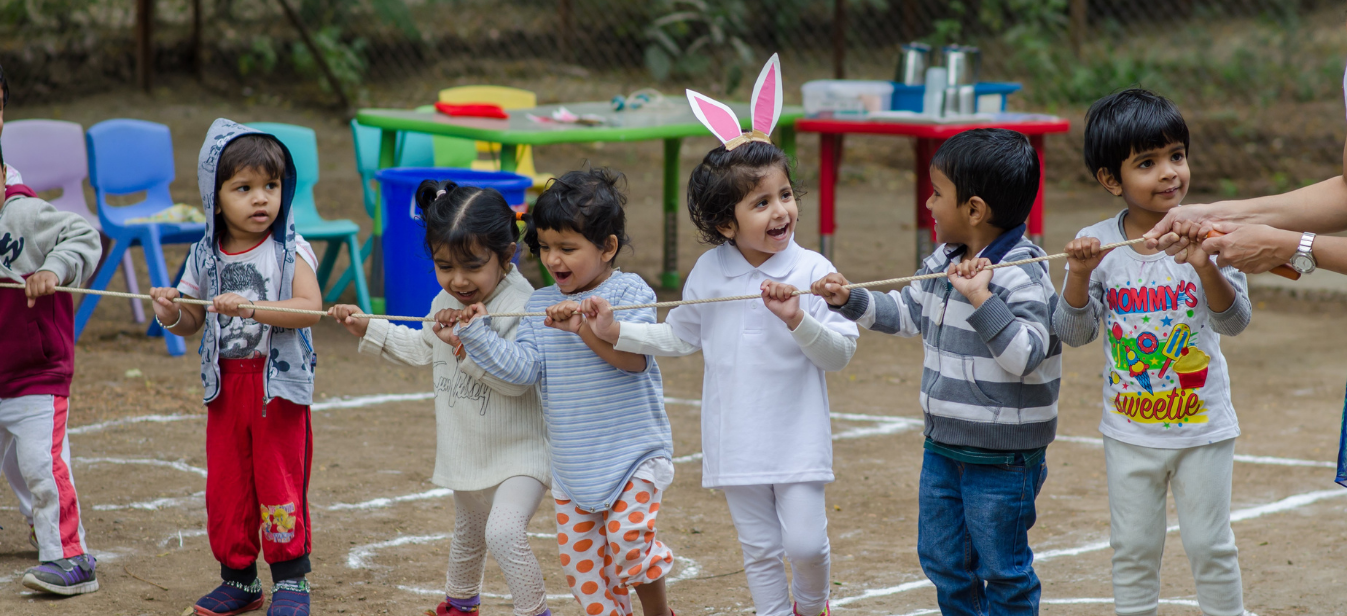The famous Italian physician and educator Maria Montessori once said, “Play is the work of the child”.
For young children, play is natural. Therefore, play-based learning feels natural to them too. Thus, play-rich environments become the single most important learning environment in early childhood education.
For more about play-based learning and its benefits, read our article on How Children Learn Through Play.

Today’s article shows how everyday items can be turned into playtime resources for foundational skill development.
*These games can be played in home or school environments.
Name: Seven Stones (Lagori)
Nature: Outdoor game; needs more than two players
History of the game: Lagori is an ancient Indian game—at least 5000 years old—that is now played in many countries around the globe.
Skills developed: Counting, fine and gross motor skills, strategy, teamwork
Name: Four Stones (Nalugu Rallu Aata)
Nature: Outdoor game; needs five players
History of the game: Another ancient Indian game, Four Stones was played in many rural districts of Andhra Pradesh until the 1960s and 1980s. Unfortunately, the popularity of this game has waned over the years. The origins of this game are also a mystery.
Skills developed: Communication (verbal and non-verbal), strategy, team spirit, social behaviour, reflexes, gross motor skills
Name: Chain (Sakli)
Nature: Outdoor game; needs more than two players
History of the game: The rules of this game probably evolved from the Western game ‘Tag’. Labelled ‘Chain Tag’ in English, Sakli is listed as a ‘traditional outdoor game on the verge of extinction’ by multiple sources.
Skills developed: Alertness, patience, caring, social emotional development, gross motor skills
Name: Hopping (Langdi Taang or Langdi)
Nature: Outdoor or indoor game; can be played individually (by asking children to ‘catch’ a hidden toy or object)
History of the game: Langdi originated during the Pandya Dynasty—also called the Pandyas of Madurai—from 6th to 14th Century C.E. Back then, this sport was called ‘Nondiyaattam’. Sports players consider Langdi to be the foundation of all sports, and the official field sport version is very useful when training for sports like kho kho, volleyball, and gymnastics.
Skills developed: Gross motor skills, balance, strengthen legs, small and large muscle development
Name: Five Stones
Nature: Indoor game; can be played individually
History of the game: This game appears in multiple civilizations since ancient times. Played by children globally, this game has many names — ashyk, jjagebatgi, anju kal, five stones, jackstones, etc. The Indian version of the game usually uses stones, although any similar sized object will suffice. After all, the Ancient Greek version of the game was played using the ankle bones of the sheep (these were called ‘knuckle bones’).
*Recommended for older children aged 5-10.
Skills developed: Dexterity, fine motor skills, hand-eye coordination, reflexes, helps in focusing
Name: Tossing A Paper Ball
Nature: Indoor game; needs more than two players
History of the game: We do not know when paper began being used as replacements for balls, but the game of tossing a paper ball has proven effects in the classroom, with multiple modifications as per the age of the students’.
Online Modification: Children can create paper balls, and toss them at the screen, in the direction of their classmates, while naming any one. That child then repeats this motion, and the game moves on until each child has a chance to call out a classmate’s name.
Skills developed: Fine motor skills, memory retention, gross motor skills
Multiple research studies over the years have proven the efficacy of play in enhancing social and emotional development—apart from other foundational skills—in early childhood. Hear Square Panda Thursdays host and early years’ stalwart, Ms. Sonia Relia, speak about how play enhances these skills. As Ms. Relia says, “The day you cannot play with your students is the day you stop working in early years.”
Watch this space for more ECCE-related resources, activities, and educational content.
Learn more about Square Panda’s experiential play-based foundational program, at https://ecce.squarepanda.in/program.

